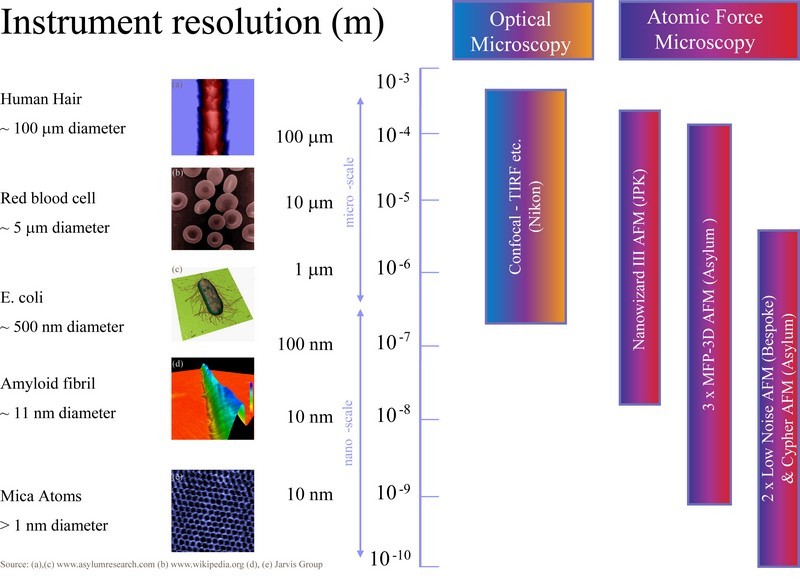Research Overview
The premise that underpins nanotechnology is our ability to understand, manipulate and ultimately utilize the function of molecules at the nanoscale. Investigating functionality at this length scale is possible using an atomic force microscope (AFM), which has the ability to detect a range of highly localised interactions between a sharp probe and a sample, from which nanoscale surface structures are deduced. However, AFM is still not fully developed in terms of elucidating function rather than structure and also in terms of investigating biological systems under physiological conditions, where applications including the detection, prevention and treatment of disease and the development of novel biomimetic materials are envisaged.
The Nanoscale Function Group actively develop AFM instrumentation and measurement techniques, thus facilitating exceptional AFM capabilities allowing them to focus on specific biological systems of medical relevance (single molecules, protein aggregates, and single cells). See below for an indication of instrument resolution capacities with respect to different samples.

